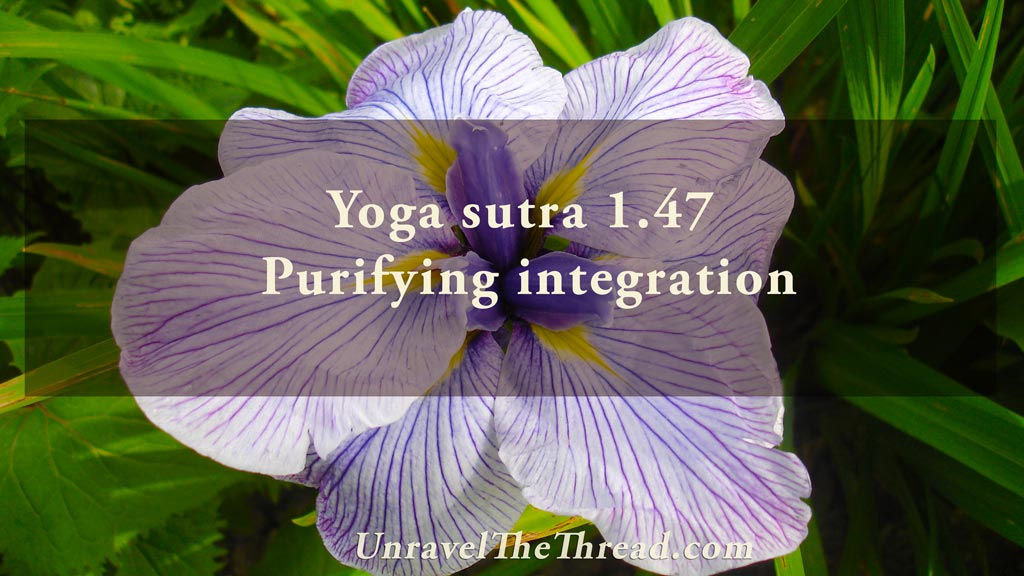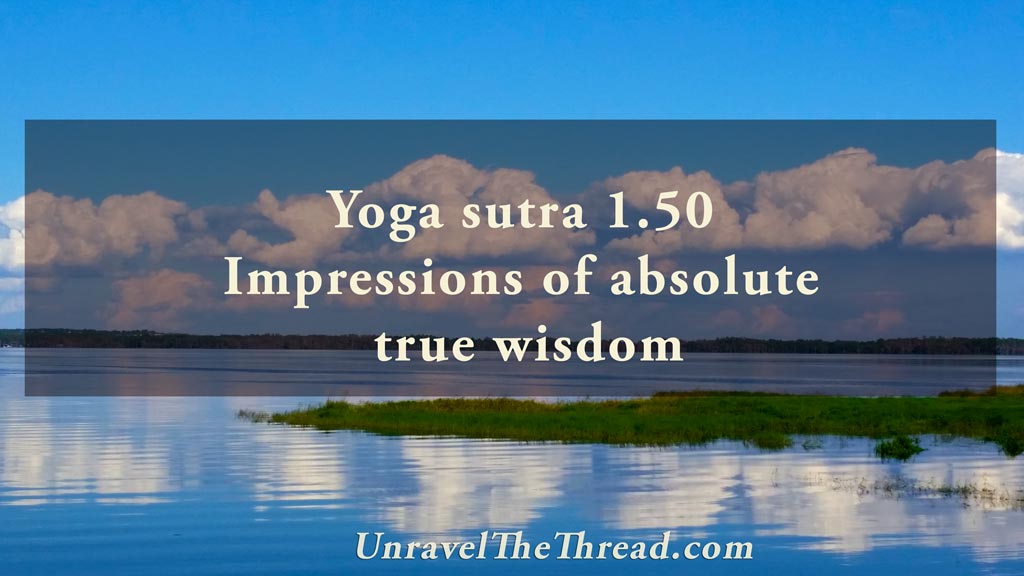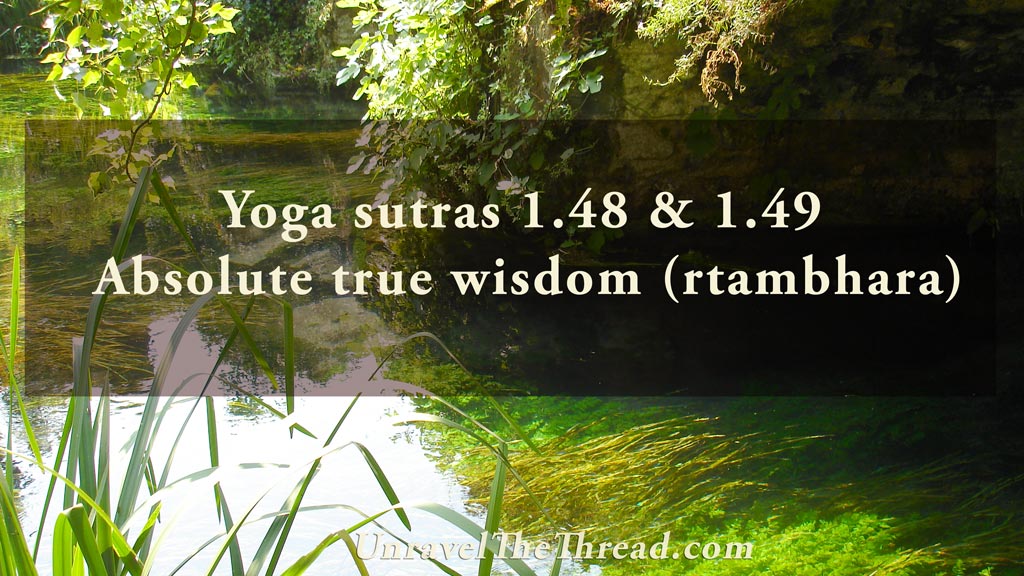
1.47 Purifying integration
February 28, 2020
1.50 Impressions of absolute true wisdom
February 28, 2020
1.47 Purifying integration
February 28, 2020
1.50 Impressions of absolute true wisdom
February 28, 20201.48 & 1.49 Dwelling in absolute true wisdom


1.48 Then awareness dwells in absolute true wisdom (rtambhara)
1.49 Absolute true wisdom, arising from pure insight and discernment, differs from knowledge gained through inference and testimony.
The Sanskrit word used in sutra 1.48 is rtambhara, meaning to bear the truth in one’s self. This is the natural outcome of the process described in verses 1.41 to 1.47. When there are no distractions, either external or internal, your awareness can be directed with piercing accuracy. Since your inner environment is cleansed you experience the world as it is. In other words, you witness with greater clarity the intricate and delicate interconnectedness between all aspects of life. At this stage in the journey, you are able to master your ways of being, your senses are united, and you can focus your mind effortlessly on whatever you choose. Then, there are no extraneous threads of activity, nothing to chase after, nothing to push away. Without distractions you can clearly distinguish between knowledge and intuition or insight. You receive insights when you tap into the wisdom that informs all of life. Most people have brief glimpses of this. Has it ever happened to you that the thought or memory of somebody you know comes into your awareness and in apparent coincidence that person contacts you? Or that you feel compelled to do something and that action leads you to an unexpected yet welcome encounter or experience? Or that you have been trying to resolve a problem or situation and have thought about all possible options but that you still haven’t found a viable solution and, inexplicably, an idea comes into your mind suddenly delivering what feels like the perfect solution? Recognizing insight and learning to trust it as the wisdom that guides life everywhere help you acknowledge your own connectedness to the intricate web of life.
Sutra 1.49 emphasizes the important difference between what you know through inference and testimony (two of the sources of correct knowledge mentioned in sutra 1.7), and the embodied wisdom resulting from meditation. Although trustworthy sources of useful information can serve as guides along your path, your direct experience of wisdom cannot be replaced by that knowledge. As you differentiate between what you know and true wisdom, you know that wisdom does not originate in you. Thus, instead of taking credit for the insight you receive, you appreciate it with humility as the gift received when you simply listen with tranquil attention. How are you listening for the silent whisper of wisdom in your practice? How does this wisdom manifest in your daily activities? Are you able to differentiate what you believe from true wisdom? What does it take to trust this wisdom? Do the insights you receive, when you trust them, result in greater harmony?
As usual, one more way of exploring the meaning of this sutra is by chanting it.
You can choose to chant it in its traditional form with some of the words coming together:
For sutra 1.48
1.48 ṛtaṃbharā tatra prajñā
ऋतंभरा तत्र प्रज्ञा ॥४८॥
Another option is to chant each word in the sutra individually:
- ṛtaṃ
- bharā
- tatra
- prajñā
For sutra 1.49
1.49 śrutānumānaprajñābhyāmanyaviṣayā viśeṣārthatvāt
श्रुतानुमानप्रज्ञाभ्यामन्यविषया विशेषार्थत्वात् ॥४९॥
And the option for chanting each word in the sutra individually for this sutra:
- śruta
- anumāna
- prajñābhyām
- anya
- viṣayā
- viśeṣa
- arthatvāt
Unravel the thread is now available as a book!
If you find Simple-Yoga.org and Unravel the thread useful, consider supporting my labor with a donation, you may also donate using PayPal or Venmo. Thank you!